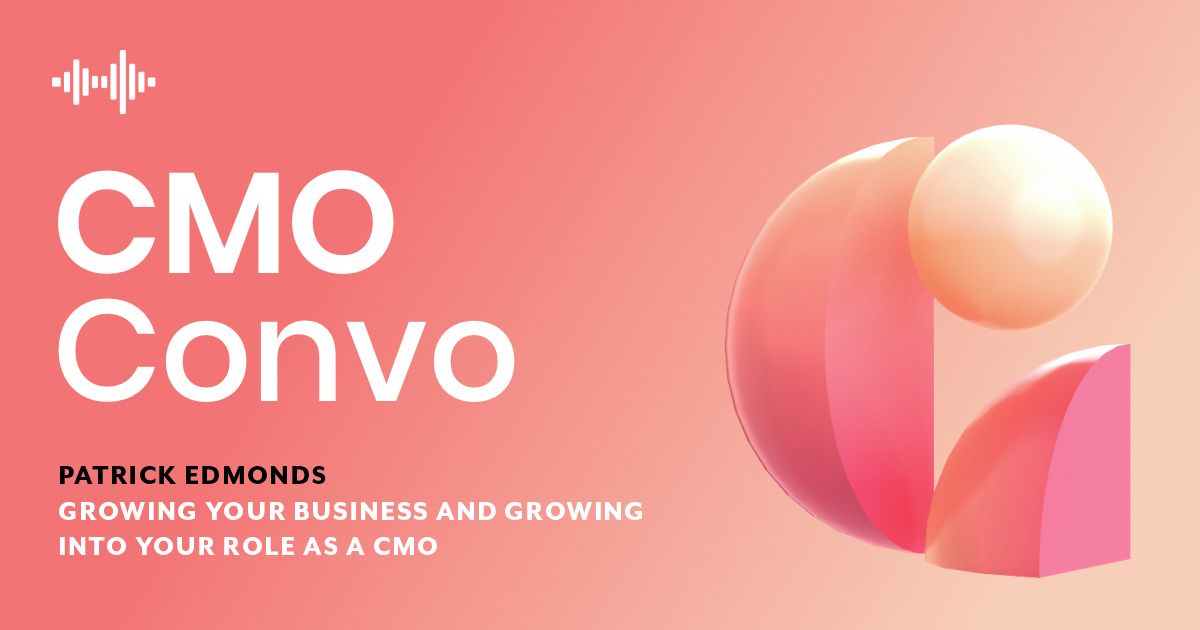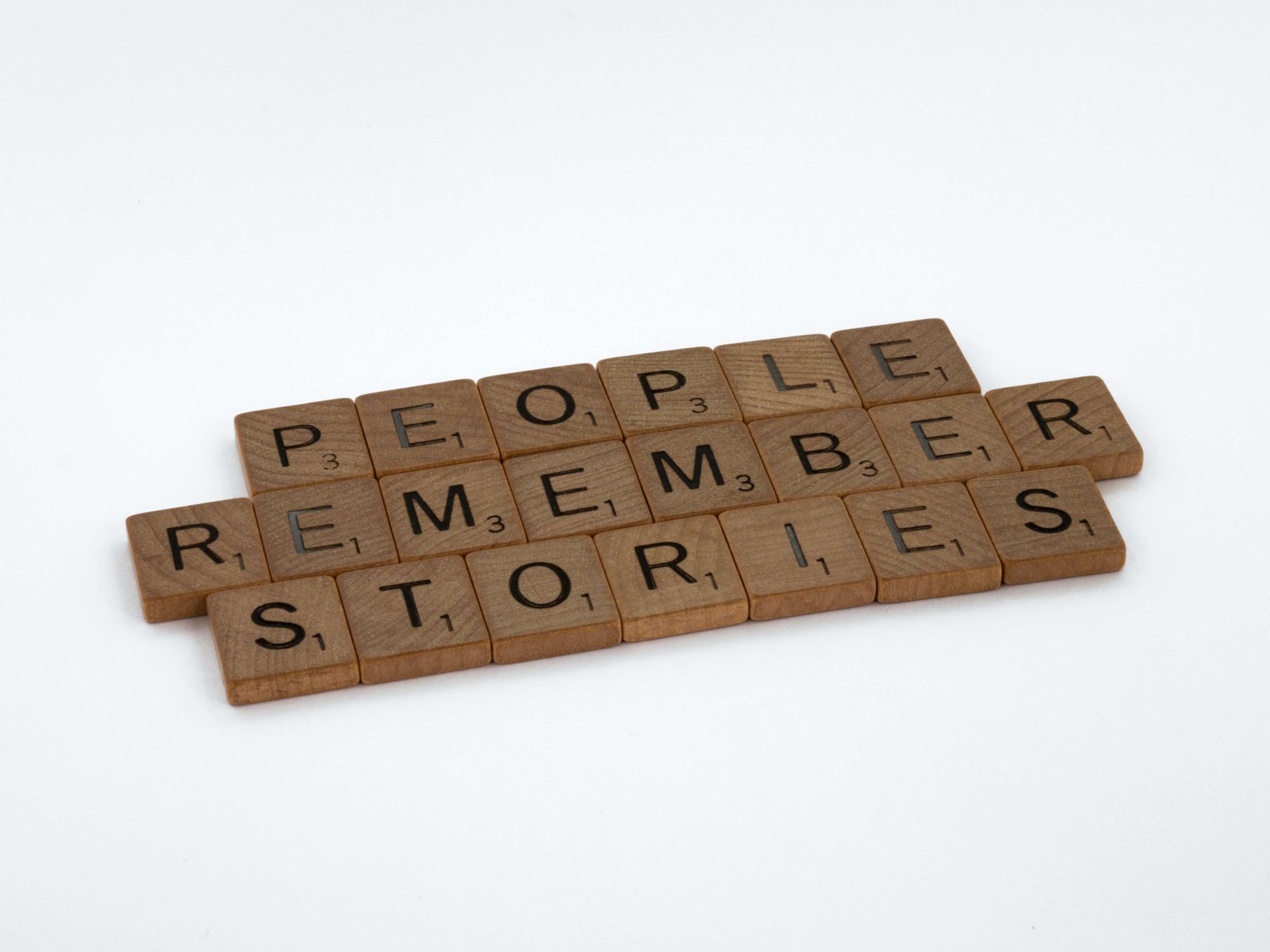At its core, a CMO’s role is to lead the marketing department of their organization. While many CMOs, particularly in start-up and early growth-stage companies, might find themselves applying their considerable marketing skills when needed, the fact of the matter is that you will reach a point where you aren’t doing much marketing yourself anymore, you’re leading and developing a team to do marketing.
That’s why developing your leadership skills is essential to being a great CMO. But leadership in the modern age is more than just giving commands. You have to consider your team’s motivations, well-being, learning and development, and much more.
In this guide, you’ll find a bank of resources where leading CMOs offer effective insights and advice on what it takes to be a great leader and, as a result, a great CMO.
- Developing leadership skills as a CMO
- Leading remote teams as a CMO
- Managing learning and development as a CMO
- Uniting your team behind a strong brand
- Employee well-being as a CMO
How can CMOs develop marketing leadership skills?
The ability to take a step back from the day-to-day machinations of your marketing department and trust your team to do their job is perhaps one of the most difficult to develop as a CMO. After all, the vast majority of CMOs are passionate marketers themselves.
Your role as a CMO is more about selecting the right people to do the jobs that you know need doing, and then inspiring them to go further.
Patrick Edmonds, former CMO of Proposify had this advice on inspiring your team as a leader:
“It's this kind of give and take where if you don't shoot for Mars, you're never going to get to the Moon sort of idea.
“Inspiring a team to be able to do that and make sure that you're really pushing yourself to succeed is really, really important. But you have to realize that those big shots, not all of them are always going to be successful. So make sure that you're aware of what you're doing, what the risks and rewards are, make those big bets. And the only way for them to really, truly be successful is if you put your all into it. So that you're giving every opportunity the best chance to succeed.
“But then be prepared to be like, "Okay, well, what's the next thing?" If this didn't go as good as I want it to be, you always have scenario planning and backup planning, and what's the next thing that you're going to do so that you're always incrementally making a little bit of improvement every single time that you do, but you can't be overly conservative with that sort of stuff too or else you won't scale and you won't grow.”
But it’s not something that happens overnight. Nobody just wakes up as a great leader, it’s something that takes practice and knowing where the right resources are to help your development.
Explore further
Want more advice on how to develop your leadership skills to be an inspiring leader? You’re in the right place.
Patrick Edmonds on developing your leadership skills
We spoke to Patrick on our CMO Convo podcast on how he grew into his role and developed his leadership skills as a CMO. Follow the links below to either listen to the episode or read a write-up of what we discussed.

How to lead a remote marketing team
The big shift to remote work in recent years has changed what it means to be a leader in a business. For CMOs, the change is perhaps even more severe than other C-Suite executives. Marketing is by its very nature a collaborative process, both within the marketing team itself and with other departments. Being able to set up processes to allow marketers to continue to work effectively, and continue to inspire, care for, and manage remote workers is becoming an increasingly large part of many CMOs responsibilities.
Many people are seeing remote work as the future of many job roles, marketers included, and so the ability to become a great remote leader is going to be essential.
As Liam Martin, CMO and Co-founder of Time Doctor says:
“[You’ll] have to adapt very quickly, or [you will] no longer be in the job. I think this is, as I said, a Model T moment, this is a more efficient way to be able to extract labor and increase revenue inside of your company. So you'll be left behind if you can't adapt to this new model.”
But what does remote leadership actually look like for a CMO? On the one hand, it requires a willingness and trust in your team to be able to do their work and not micro-manage, instead focusing on ensuring they have the resources they need, and the mindset and motivation to get the work done.
As Liam explains, remote CMOs should only be having “important conversations” with their workers:
“Only important conversations: ‘How are you?’ ‘How are you feeling?’ ‘You're stressed out?’ ‘Why are you stressed out?’ ‘How can I help you?’ ‘Am I being annoying?’ ‘Do you want more feedback from me?’
“These are the only things that a manager should really be focusing on because everything else inside of a remote-first asynchronous organization is quantified, measured, and measurable by everyone inside of the organization.”
Amanda Reierson, Head of Marketing at Thumbtack, builds on this idea of a relatively hands-off approach that encourages independence:
“I would say, yes, the old manager persona is sort of dead. And if it wasn't dead already, it certainly is now. A manager’s role in my mind is all about setting that vision and empowering your employees to get there, however they see fit.
“Now, it's almost magnified in that you're physically figuring out how to get there however you see fit too from home. You're not face-to-face and if anything, it accelerates that trend or at least the type of manager I think people want to work for: ‘I trust you, get it done, and my job is to be here to clear the brush for you virtually or non virtually’.
“As long as we agree together on what success looks like, and we're aligned on the vision, empower your team to get there however they need to in their professional lives, and however they need to work personally: ‘I trust you and you'll get it done.’”
Despite the challenges that come from managing remote teams, there are advantages to remote work and leadership to marketing teams, beyond people not having to suffer through commutes anymore.
Many marketing leaders believe that collaboration and shared creativity could be improved in remote settings. With the right approach, introverts and quieter voices have the opportunity to shine, whereas before they might have been drowned out by louder voices that might not necessarily have better ideas.
Both Liam and Amanda have seen this in action.
Liam:
“It is more difficult, for sure, to be able to get everyone on the same page. From a leadership perspective, it's a lot more difficult to be able to make that happen. With that said, however, it also allows for everyone to be heard equally, going back to the loudest voice wins type of argument, this is not necessarily something that you want inside of an organization. Just because someone is very charismatic doesn't necessarily mean that they have good ideas.”
Amanda:
“There are certain things from an inclusivity perspective that I think are helpful in that before we would have meetings and there's only so many people that can fit in a conference room and, okay, this one will be limited to 10 people. Now it's like, okay if we're having a certain presentation that I think it'd be great for my team to hear, anyone can dial in.
“Zoom rooms are as big as you want them to be and there's a certain transparency there of ‘yeah, sure, come and listen’. I've taken advantage of that, too. Where in the past, sometimes I feel like things would be limited just based on capacity and who was in the room. Now everyone can be in the room.”
But with all the great leadership skills you might have, you’ll still need the right tools for your team to be able to work and operate effectively.
Maria Jose Parel, CMO of IVF Life, has this advice on the tools that have been essential for running her marketing team, which is remote working across multiple countries:
“Project Management tools are essential to keep track of all projects and important communications. Furthermore, a solid reporting system is also required to assess the result developed by your actions and helps you make more confident decisions based on how the campaigns are performing.
“And of course, a good video call system and internet connection helps avoid frustration during meetings!”
Explore further
For more on how to effectively lead remote marketing teams as a CMO, check out our podcasts and articles.
Liam Martin on the future of remote CMOs
As the co-founder of Time Doctor, a remote work management SaaS company, and the Running Remote conferences, Liam Martin is a tireless evangelist on the benefits and processes of remote work.
Liam appeared on our CMO Convo podcast to explain why remote CMOs and marketing teams weren’t just a pandemic-era stopgap, but are actually the future of effective work, along with plenty of advice and insights for CMOs to set up and manage remote working processes.

Amanda Reierson on compassionate leadership while remote working
When she recently stepped into the Head of Marketing role at Thumbtack, Amanda not only had to get up to speed on how to run and lead her new team, she had to quickly get to grips with remote working practices for the first time.
She joined us on our CMO Convo podcast to go through the challenges she’s encountered and how she’s overcome them, particularly the challenge of caring for employee wellbeing and motivation when you can’t see them all the time.

Maria Jose Parel on managing a remote international marketing team
While many CMOs found themselves having to adapt to remote work as a response to the COVID pandemic, Maria Jose Parel, as CMO of IVF Life, already had considerable experience with managing remote teams, as her’s was split across multiple countries in Europe already.
She shared with us her advice on how to run an effective remote team across multiple countries.

Managing learning and development as a CMO
Part of building and leading an effective marketing team as a CMO is ensuring your team is constantly improving. This doesn’t just mean recruiting new people, it also means helping your current team members improve with effective learning and development frameworks.
By working closely with your team members to help them develop their skills, you’ll not only help them become better, more effective marketers, you’ll also increase employee retention and attract better, more ambitious talent.
Maya Grossman, VP of Marketing at the inclusive recruitment platform Canvas, explains it like this:
“What most of us want is an opportunity to grow and learn and to be appreciated for the work that we do. I think if you can facilitate that, it will be much easier for you to retain talent, but it can't be an afterthought, or it can't be ‘Oh, once a year I'll give them access to a class so people feel like they're learning.’ It needs to be an ongoing process, you want to talk to them about their career development and their growth and their goals all the time, and take actionable steps to actually demonstrate how you're helping them grow.”
Furthermore, for CMOs and brands who pride themselves on inclusivity, robust learning and development processes can open up opportunities for clearly talented and ambitious workers who might otherwise have been held back by circumstances beyond their control.
Maya had this anecdote to share as an example of how this can be beneficial:
“Earlier in my career, I was looking to hire someone to do social media. Fairly junior but we were hoping to find someone with a little bit of experience. I had two final candidates. One of them actually had five years of experience, they checked every single box, the interview was great.
“Then I had this young person who said, "Look, I've never actually done social media anywhere else. But because I knew I wanted this role at this company, in the past six months, I created a Facebook page, I created an Instagram account, here's everything that I was able to do. I also found a coach, I've been working with them for three weeks because they actually did social media and they taught me a few different things".
“And when I asked both of them to give me an example for a campaign that they would do, just to think creatively, guess who had better answers and better ideas, and ended up getting the job?
“That younger person, hands down, was so much more creative, was so much more open to ideas, and they were so hungry to get the job done and get the opportunity that not only were they one of the best hires, they actually became one of my first managers because they were that good.”
However, when it comes to learning and development, you can’t just apply a “one-size fits all approach”. Forcing people to develop skills that they aren’t passionate about just won’t work, which is why it’s important to have your learning and development processes tailored towards individuals.
Andrea Linehan, CMO of fintech company Zai, had this to share on how she approaches learning and development for different individuals:
“It all depends on the potential career progression of that person. I will always be very open to anybody coming in at a junior role and I'll ask them when I'm interviewing them, what is the vision for yourself in the future? Do you eventually want to be a Chief Brand Officer, do you eventually want to be running a team of designers? Where are your aspirations?
“I'll know if the person's aspiration is, I just want to design all day long, I want nothing but the responsibility to deliver my creative design excellence on time, all the time, then I'd say, okay, great. I know then that's where your capacity is at and that's what you're learning and development path will be built around.”
Explore further
For more places where you can learn and develop your approach to learning and development, head to our podcasts and articles.
Maya Grossman on being an inclusive marketing leader
As the VP of Marketing at Canvas, Maya is passionate about workplace inclusivity and its benefits to marketing departments. She joined us on the CMO Convo podcast to explain the benefits of putting inclusivity and diversity at the forefront when leading marketing teams, including a big focus on the power of learning and development to break down barriers.

Andrea Linehan on teaching her team to love finance
Andrea is a big believer in using learning and development to help her team be more effective, and she joined us on the CMO Convo podcast to explain how she’s been teaching her team to take ownership of the financial side of marketing and build up better connections with Finance departments from early in their careers.
Furthermore, she explains how to tailor your learning and development processes towards people’s passions and skills.

Andrea also covered bridging the Finance/Marketing divide, which touched on how to train marketers to do so, in a fireside chat with Greg Stafford, CFO of Clever Cards, at our CMO Summit in November 2021.
Follow the link to watch their discussion OnDemand.

Uniting your team behind a strong brand
Your organization’s brand isn’t just important for your target audience, it can be a great unifier for your marketing team. Having a strong brand and consistent values that your team can be passionate about can be an extremely powerful leadership tool as a CMO.
Marketers that are engaged with and passionate about their brand will go further with their work and think more creatively. Without it, they’re likely to just aim to tick boxes and do the bare minimum.
As Patrick Edmonds explains:
“You can't dictate every decision, you don't want to dictate every decision so it's really important to make sure that picture is clear as possible when those decisions are being made. And then ultimately give the ability for more of those decisions to be made from your organization. That's when you can get things done faster and more efficiently and you'll probably see better ideas because if you've hired correctly, you've got a lot of smart people in your organization who don't need to just be told what to do.”
There are certain steps you can take as a CMO to help your team feel more connected with their brand.
Erin McLean, CMO of cybersecurity company eSentire, believes it’s important to make sure your team is included in decision-making to make sure they feel ownership of how the brand develops.
“I think first and foremost is continuously keeping people engaged, having them understand where it's coming from, and having them give feedback and iterate on the process. I also think that you don't know everything, especially if you're new, you don't know the history, you don't know what's been tried.
“You really need to listen and you need to be open to different perspectives. For example, I had in one of my very first creative reviews with the team, where they were kind of introducing some of the concepts for the color palette, they had this super bright magenta, my gut reaction was no, what are you doing? We're cybersecurity, we are red, black, gray, dark blue, we are not magenta. It is not something that you would typically see in our space.
“I kind of voiced that a little bit, and then I stepped back and was like, give me the why, help me understand what this is going to do for you and what it opens up to you creatively. I was blown away at the perspective that the team had, what they were really hungry for.”
Explore further
We have a wealth of materials on the power of branding in aligning teams. Check out the links below to our podcasts and articles to discover more.
Erin McLean on helping your employees tell your brand story
Erin McLean, CMO of eSentire, joined us on the CMO Convo podcast to explain why it’s important to put people at the heart of your brand story, particularly having your employees helping you to tell that story.


Yoni Solomon on the power of brands to align organizations
Yoni Solomon, CMO of Uptime.com, has been discussing branding at length in his appearances on the CMO Diaries podcast, including a deep dive into the importance of branding to align organizations.


Employee well-being as a CMO
Business leaders are increasingly expected to take ownership and care of their employee’s well-being, and it’s no different for CMOs.
People, in general, have more awareness over their mental health, and the impact that work pressure can have on their lives. They are increasingly willing to walk away from jobs that they aren’t happy with, even when they don’t have an immediately available alternative.
Employee happiness is particularly important in marketing, where stress and pressure can have adverse impacts on the quality of their work. To put it simply, happy marketers are more effective and creative marketers.
As Amanda Reierson, Head of Marketing at Thumbtack, explains:
“How, as leaders, can we be proactive about the real issues facing our employees?
“I think over time, frankly, the market will dictate how companies manage the remote working because you're right, people aren't gonna stand for it. Frankly, a lot of people are leaving jobs now with no other job to go to because it's that important to them to figure out where they land.
“That's been unheard of in the past, you have another job when you quit your job. But people are putting mental health and personal lives first and the job will come second.”
As a result, it’s important for CMOs to take steps to show they care about their teams. But it takes more than just offering meaningless perks, it needs to be a consistent culture that values employee wellbeing.
As Maya Grossman, VP of Marketing for Canvas, explains:
“In general, culture is a reflection of what people do, not what they say. A lot of the time, you have these great values, and companies share on their website what they believe in, and then when you go and work there, you realize, ‘Oh, they don't actually practice what they preach’.”
Part of that is being able to manage your team through major projects and changes and let them know they have your support.
Ben Rees, formerly CMO of Redgate Software, shared this advice:
“To overcome problems, you need to build trust and resilience in your team. Prepare them to know that ‘Things will definitely go wrong here!’, and support them when that happens. It’s an attitude really, an expectation that everyone will have to think on their feet, and that when things do go wrong, we can solve them together.”
CMOs can also take steps to show their team they care, whether it’s on a daily basis, or on special occasions. This is especially important in a remote working situation, where you might not be able to casually check in on people who might need support.
Nischala Murthy Kaushik, CMO of HFS Research, has this advice for building personal connections with remote team members:
“At the end of the day, man is a social animal. So it is important for us to connect, and just see the faces and see the smiles and exchange a few laughs and keep that human connection and conversation going.
“As leaders, it is important just as there's so much importance to say, 'know your customer', I think it is important to know your people. Sometimes you don't always need to ask the person, there is a network that is an organization. People share usually, so suppose I asked, "Hey, what's your favorite color?" I can ask you or I can ask somebody else on the team.
“Just knowing your people and asking a thoughtful question about them. I have a very diverse team, so somebody's mother was not well and diagnosed with cancer, somebody's other parent was having a health issue. The point is, can you ask the questions? Can you be a better listener?”
When it comes to remote work, Erin McLean of eSentire believes that consistency is key to building connections with and caring for your team:
“What are the elements that are true to your culture, that are true to the business that you can replicate in the environment where you're not seeing each other every day? Did you have a weekly lunch?
“Did you used to send packages to your team on their anniversaries? Whatever those fun surprise and delight moments are, this has been a long haul and you've had to find ways to engage with your team and with your customers really genuinely.”
Explore further
If you’re looking for more advice on how to be a compassionate leader as a CMO, then look no further than our podcasts and articles on the subject.
Amanda Reierson on compassionate leadership in remote settings
Amanda joined us on the CMO Convo podcast to break down the difficulties of managing employee wellbeing when you can’t see them all the time, with advice and insights for how leaders can truly care for their teams.


Nischala Murthy Kaushik on how to keep your team smiling
As the CMO of HFS research, Nischala believes that the core pillars of being a great CMO are strategic knowledge, constantly skilling up, and encouraging smiles among your team. She shared her approach with the CMO Convo podcast.


Ben Rees on building and managing a marketing team
Ben Rees explained in detail to us and the CMO Alliance Community, how he went about building and leading his award-winning marketing team while at Redgate software, with a big focus on how to lead them through tough times.

Got questions on how to improve your leadership skills as a CMO? Got advice to share for others? Join the conversation on the CMO Alliance Community Slack Channel!






